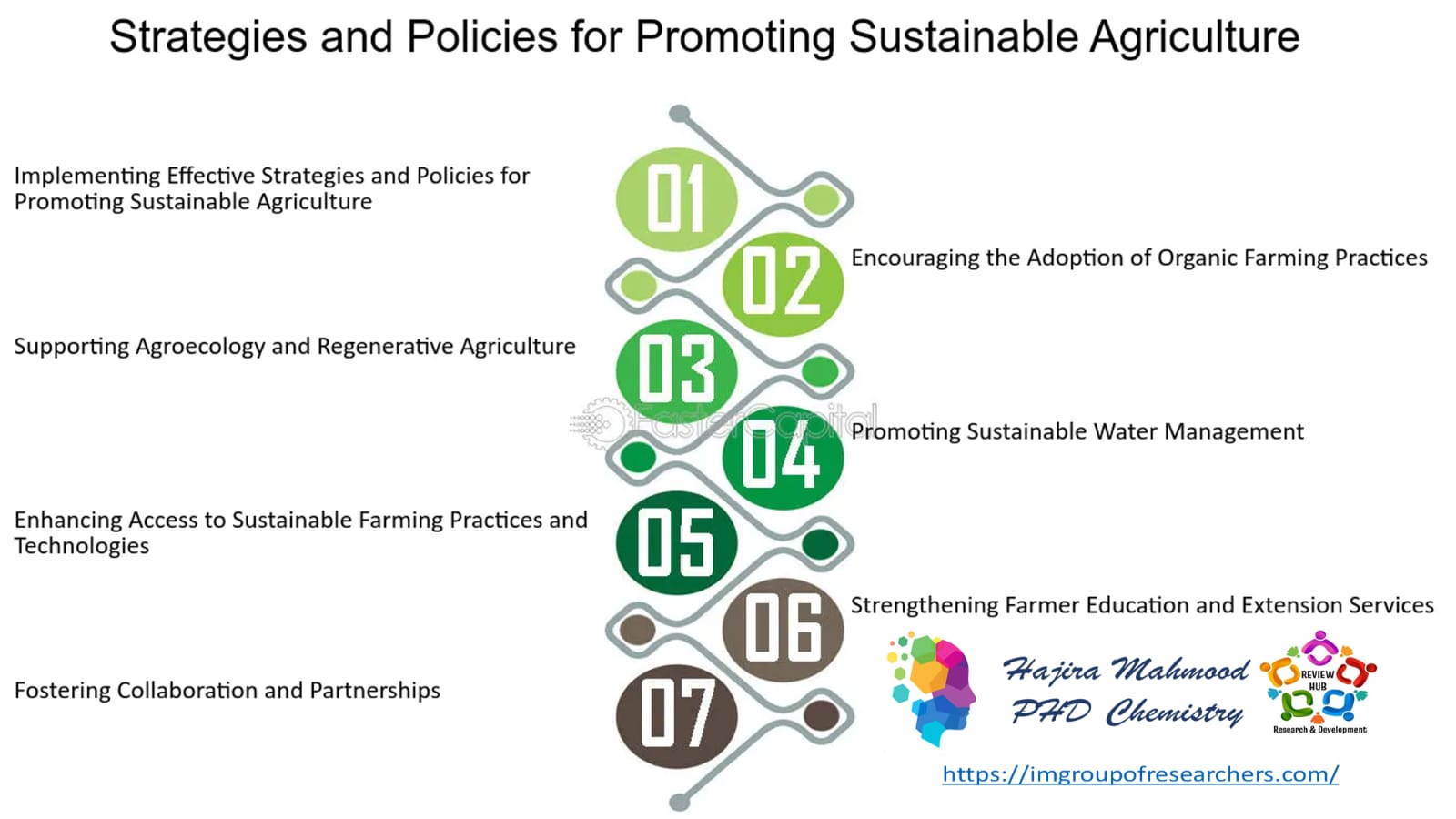Implementation of sustainable agricultural practices in different parts of the world. Implementing sustainable agricultural practices can vary based on the specific needs, resources, and challenges faced in different parts of the world.
Author: Hajira Mahmood
However, here are some ways in which sustainable agricultural practices can be implemented globally:
1. Conservation Agriculture
Promote conservation agriculture techniques such as minimum tillage, cover cropping, and crop rotation. These practices help improve soil health, reduce erosion, and enhance water retention.
2. Efficient Water Management
Encourage the use of efficient irrigation methods such as drip irrigation or precision watering systems to minimize water wastage and reduce reliance on freshwater sources. Implement water harvesting techniques like rainwater collection and storage.
3. Organic Farming
Promote the adoption of organic farming practices that avoid synthetic pesticides and fertilizers. Encourage the use of organic amendments, composting, and integrated pest management (IPM) strategies to maintain soil fertility and manage pests and diseases.
4. Agroforestry
Integrate trees and other woody vegetation into agricultural landscapes. Planting trees in and around farms can provide shade, reduce wind erosion, diversify income sources, and promote biodiversity.
5. Sustainable Livestock Management
Encourage sustainable livestock practices such as rotational grazing, mixed-species grazing, and silvopastoral systems. These practices help improve soil fertility, reduce overgrazing, and minimize the environmental impact of livestock farming.
6. Crop Diversity and Genetic Resources
Promote the use of diverse crop varieties and protect genetic resources to enhance resilience to pests, diseases, and climate change. Encourage the conservation and utilization of local and traditional crop varieties.
7. Integrated Pest Management
Advocate for the adoption of integrated pest management (IPM) approaches that include biological control, cultural practices, and targeted use of pesticides. This reduces reliance on chemical pesticides and promotes ecological pest control.
8. Farmer Education and Training
Provide education and training programs to farmers on sustainable agricultural practices, including soil conservation, water management, crop rotation, and integrated pest management. Empowering farmers with knowledge and skills is critical for successful implementation.
9. Access to Resources and Technology
Ensure equitable access to resources, technology, and financial support for farmers to adopt sustainable practices. This includes providing affordable access to renewable energy, efficient machinery, and climate-smart technologies.
10. Policy Support and Incentives
Governments and policymakers should develop supportive policies, regulations, and incentives that promote sustainable agriculture. This includes providing subsidies, research funding, and market incentives for farmers adopting sustainable practices.
These approaches can help promote sustainable agriculture globally by focusing on soil health, water management, biodiversity conservation, minimizing chemical inputs, and enhancing the resilience of farming systems. It’s essential to adapt these practices to local conditions and empower farmers with the necessary knowledge and support to implement them effectively.
Also read: Recent Trends to Meet the Changing Demands of the Global Food Industry
Follow Us on

